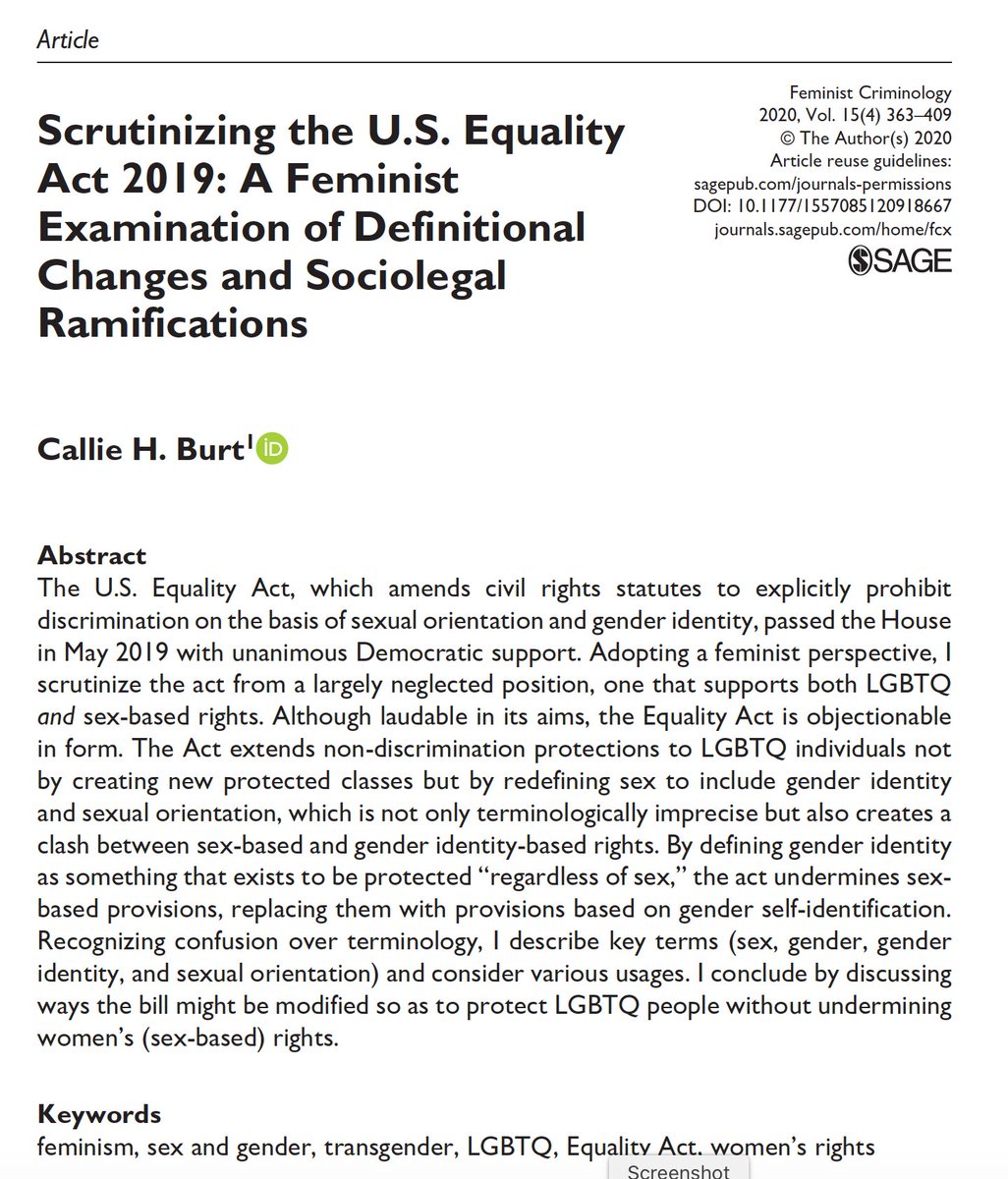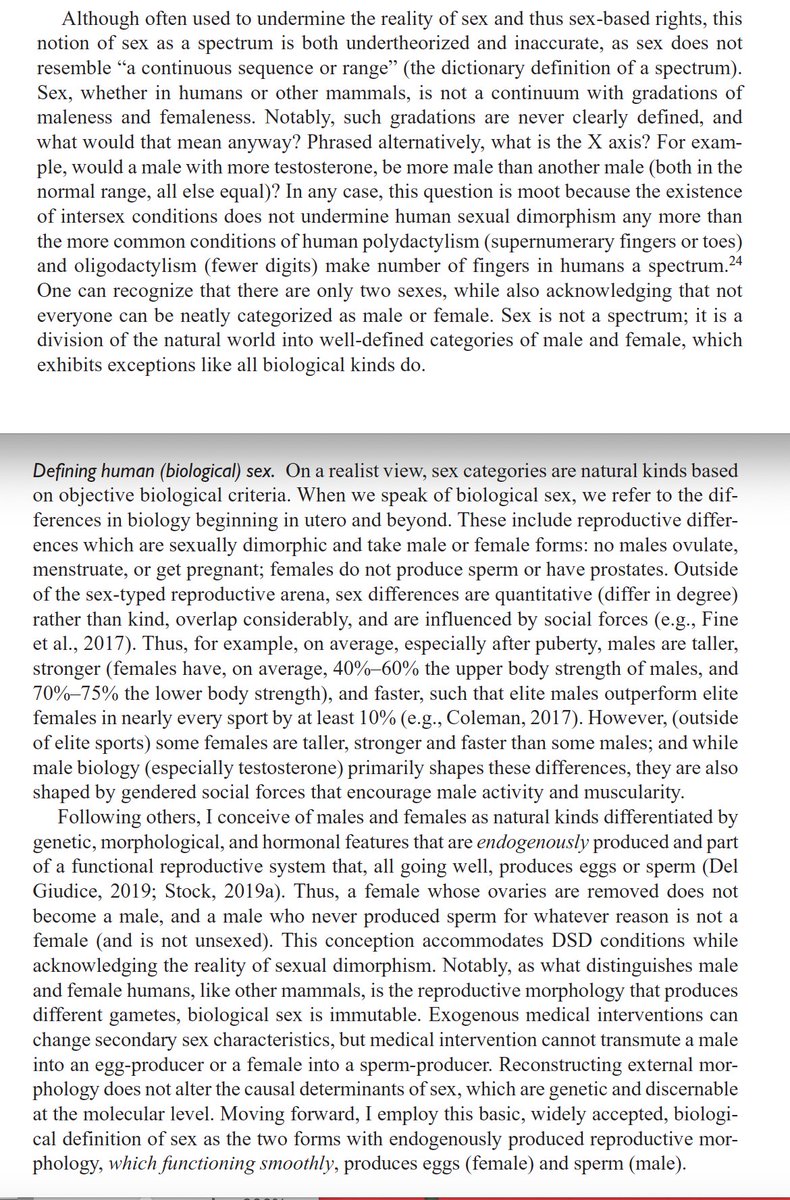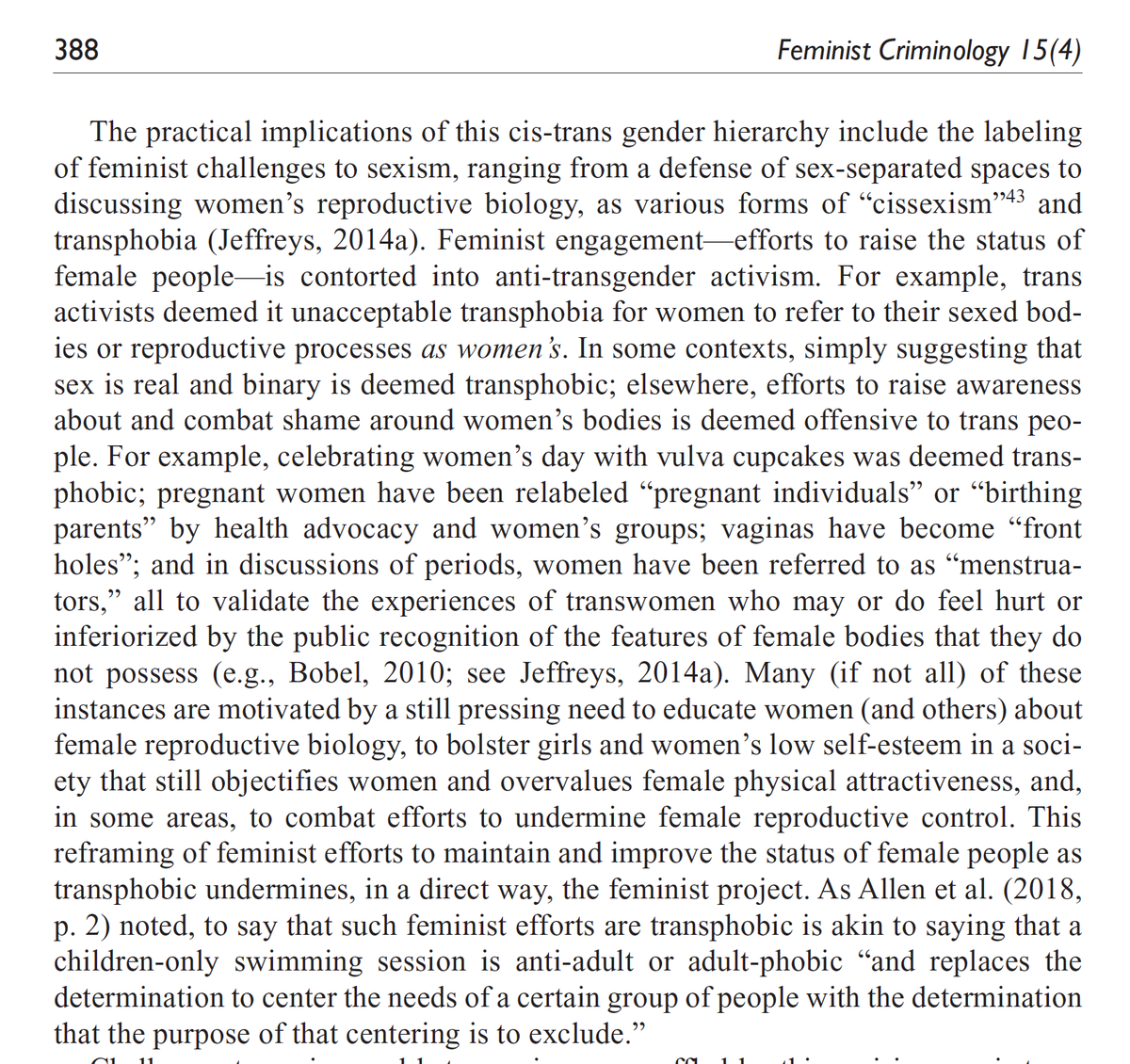Debates over trans, sex, and gender 1/23: This journal article spells out feminist concerns over recent legal proposals with regard to trans people. A detailed, scholarly expression of feminist, ‘gender critical’ assessment of common arguments. In full: https://xyonline.net/sites/xyonline.net/files/2020-09/Burt%2C%20Scrutinizing%20the%20U.S.%20Equality%20Act%202019%202020.pdf">https://xyonline.net/sites/xyo...
The proposed Equality Act “fails to strike a balance between the rights, needs, and interests of two marginalized (and overlapping) groups — trans people and females — and instead prioritizes the demands of trans people over the hard-won rights of female people.” 2/23
The proposed Equality Act “would allow *any* male at *any* time to claim access to female-only spaces or provisions on the basis of a gender identity claim”, extending this both to transwomen and to predatory or opportunist males 3/23
The proposed Equality Act “would *fundamentally shift* American law and policy from sex-based to gender identity-based rights, thereby eliminating females’ sex-based provisions” 4/23
Public debate on trans: There has been a near complete freezing of public discussion on this from among progressives. Charges of transphobia, practices of vilification, harassment, intimidation, and cancellation. Idea that *any* raising of concerns is motivated by bigotry 5/23
Public debate on trans: Academics critical of trans-related claims or policies fear discussing their concerns. I.e., the normal processes of free intellectual inquiry and unfettered critical scrutiny are not operating. 6/23
Public debate on trans: There is a state of policy capture, involving both lack of public scrutiny to changes in policy and an absence of due process, including failure to consult with or consider affected groups. 7/23
Women’s sex-based rights are justified on the basis of both biological differences between males and females (physiological differences and women’s reproductive burden) and the historical subordination and ongoing discrimination against females. 8/23
Sex-based provisions mitigate historical and ongoing social disavantages, provide safer female spaces, and facilitate women’s equal involvement in public life. Yes, including bathrooms. Sex-based provisions continue to be crucial. 9/23
Sex and biology: Humans are sexually dimorphic. Sex is recognised at birth, not ‘assigned’. "in the overwhelming majority of cases (>99.8%), sex classification at birth is an unambiguous, accurate classification based on objective biological criteria" 10/23
Sex and biology: Sex is not a spectrum, with gradations of maleness and femaleness. And the existence of intersex conditions (in less than 1 out of 1,500 births) does not undermine the fact of human sexual dimorphism. 11/23
Gender: Feminism is based on "the belief that women/girls are subordinated to men/boys on the basis of their membership in the female sex class; that this subordination is not natural (or an inevitable consequence of biology); and that this situation should be changed” 12/23
Feminists theorise that women’s subordination has a social origin. They challenge biological essentialism. Gender refers to malleable social differences – to social norms or expectations imposed on sexed bodies (i.e., femininity and masculinity). 13/23
Gender is not a property of individuals, but something we do in interaction in accordance with social scripts. We do not ‘have’ a gender. We do gender as masculinity or femininity, or challenge it as gender nonconformity. 14/23
For feminists, gender is a socially constructed hierarchy, which values masculinity over femininity. The primary feminist objection to gender is not its binarism, but the devaluing of femininity and females under patriarchy. 15/23
“If being a woman is unmoored from female biology […] then (a) being a woman is tied to traditional sex stereotypes of femininity, or (b) there is no difference between men and women and no objective way to discern whether a person is a woman or not” (Burt, 2019, p.385) 16/23
Cis and cissexism: Displaces the feminist challenge to gender with a notion of a cis-trans gender hierarchy. Non-trans females (and non-trans males) as privileged by gender. 17/23
This means that feminist challenges to sexism, and discussions of women’s reproductive biology, are labelled as transphobia or cissexism. E.g., raising awareness of female bodies and reproductive biology as transphobic, p. 388. A direct undermining of feminist projects. 18/23
“The language for challenging sexism, female-subordination, and even identifying and discussing female embodiment and experiences (period issues, reproductive rights) is censored as transphobic” (388) 19/23
Lesbian and gay sexualities also disappear here. Sexual orientation is criticised as transphobic. This disappears sexism, and people’s *sex*ualities (388). (See also Stock, asking if biological males can be lesbians: https://www.thearticle.com/can-biological-males-be-lesbians/)">https://www.thearticle.com/can-biolo... 20/23
Legislating that gender identity overrides sex-based rights without exception is hasty, misguided, and contributes to female subordination. There are better ways to protect LGBT *and* sex-based rights. Distinct protections for gender status, sexual orientation, and sex 21/23
Support for the Equality Act reflects: a) policy capture, b) confusion regarding sex and gender, and c) sexist disregard for females. The bill is both unacceptable and unnecessary. 22/23
Burt answers a series of frequently asked questions in response to her article, in the supplementary material here: https://callieburt.org/research-projects/oscl/scrueqact-online-supplement/">https://callieburt.org/research-... 23/23

 Read on Twitter
Read on Twitter






